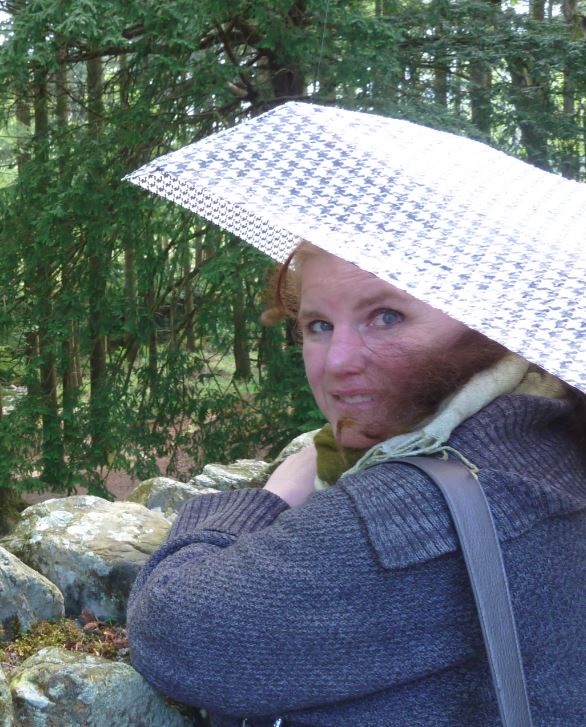Thinking about it. The Drowned World and Heart of Darkness. Brave New World and The Tempest. The Man in the High Castle and I Ching. Mefisto in Onyx and Faust. The Door into Summer and Satyricon. The Centauri Device and Comus. And now, this book: Beggars in Spain and Fountainhead.
I so very much enjoyed reading this book, too. I knew I would, ever since we brought it back from the used book store in Anaheim, last July. I did have a false disappointment when I first started it, though. The writing is imprecise; the science of sleep is skewed (long ago, I did have both a fascination with sleep and dreams, as well as ethology classes and Sleep Psychology in Irvine); it started with a juvenile character’s point of view. These flaws placed boulders right in front of the starting gate, as far as I was concerned. But imprecise writing is much more forgivable than pretentious writing (ala Octavia Butler, for instance), and given the deep history and life that swam out of the pages of this book, I was soon lost in the story, not noticing the writing at all, but living in the story itself – the sign of a great book. There were parts I lost faith in, but the story quickly wound me back in. Therefore, I look at this book as not so much as a piece of literature but as a living entity with its own flaws and outstanding virtues – an entity for whom I have great affection.
I know why I connected with this book so strongly. It touches on many themes dear to my heart, but it touches on something that has plagued me in particular: the envy of others. I have always dealt (and not well) with other people who were angry and hateful toward me because I could do (with my writing, my creativity, my comprehension, my sense of honor) what they could not – because, as my father put it when I was in first grade and ranting against the unfairness of it all, “They hate you because you are the bear with the brightest eyes.” Well, finally, here was a story that understood that, and therefore, understood me.
Kress writes winning characters. After looking up her website (I was wondering if she were local, because there are allusions to both Morro Bay and Monterey – she’s not), I saw that she had written a nonfiction book on characterization. I bought it. Sigh. And because there was a discount, I bought another of her books on plotting. Double sigh. I’m an addict.
In anticipation that this would be a wonderful book, I had bought a fancy beaded and tasseled “Dragonology” bookmark to replace the worn paper one that I had bought at the natural history museum in Paris. (That one was supposed to end up in the photo album. It still might.) It dawns on me that I have always admired those lovely, fancy bookmarks that are for sale everywhere (especially in bookstores), but have never bought one. That will change. It has pleased me so much, it is just ridiculous that a small piece of plastic can make me feel that rich and worldly.
This writing lesson is so valuable for me: that like our own world, other literatures act as a kind of physics in the world of Story. There is a great lesson on character building, too. Regardless of the flaws a character has, if they have some admirable qualities, they become sympathetic. I loved Leisha’s “naive idealism” and light-filled joy, but I also loved Jennifer’s fierce ability to control her thoughts and create three-dimensional diagram trees in the bleakest of environments.

 RSS Feed
RSS Feed